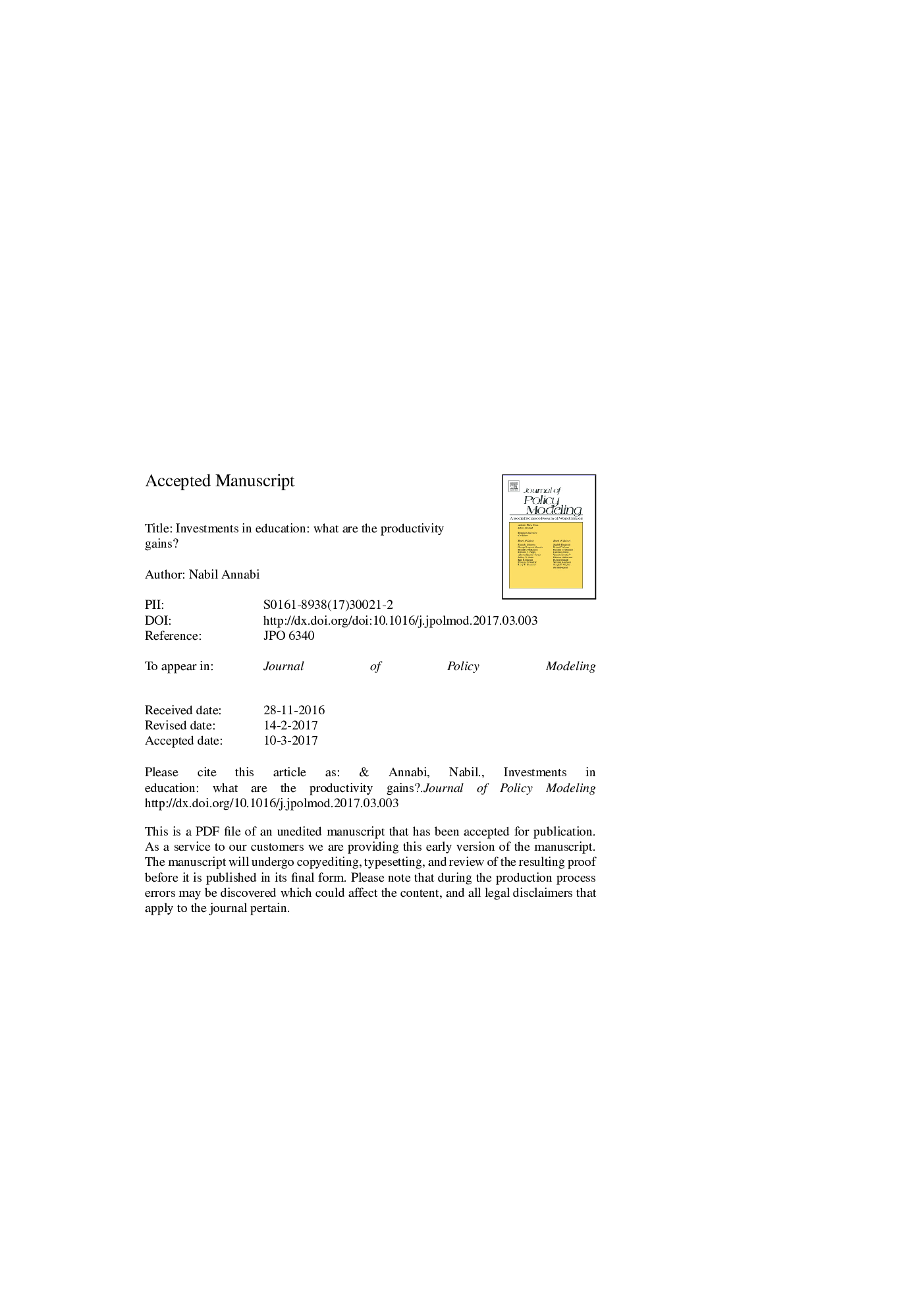| Article ID | Journal | Published Year | Pages | File Type |
|---|---|---|---|---|
| 5101666 | Journal of Policy Modeling | 2017 | 30 Pages |
Abstract
Policy debate surrounding education focuses on whether governments should increase financial support for higher education. This paper addresses this issue by quantifying the impacts of additional education expenditure using an endogenous growth overlapping generations model applied to the Canadian economy. Simulation results show that tax-financed increases in education expenditure lead to sustainable productivity gains when external effects of human capital are accounted for. In addition, growth effects of gradual increases in investments in education suggest the existence of a significant scope for public policy. However, welfare gains may not be evenly distributed across generations. Cohorts entering the workforce just after the policy shocks would bear a larger share of the financing costs, while future cohorts enjoy higher earnings and welfare. The results suggest that the specification of households' preferences may also play an important role in the assessment of education policy.
Keywords
Related Topics
Social Sciences and Humanities
Economics, Econometrics and Finance
Economics and Econometrics
Authors
Nabil Annabi,
